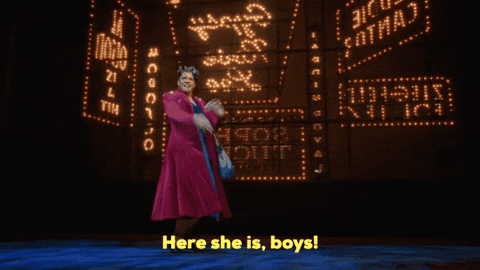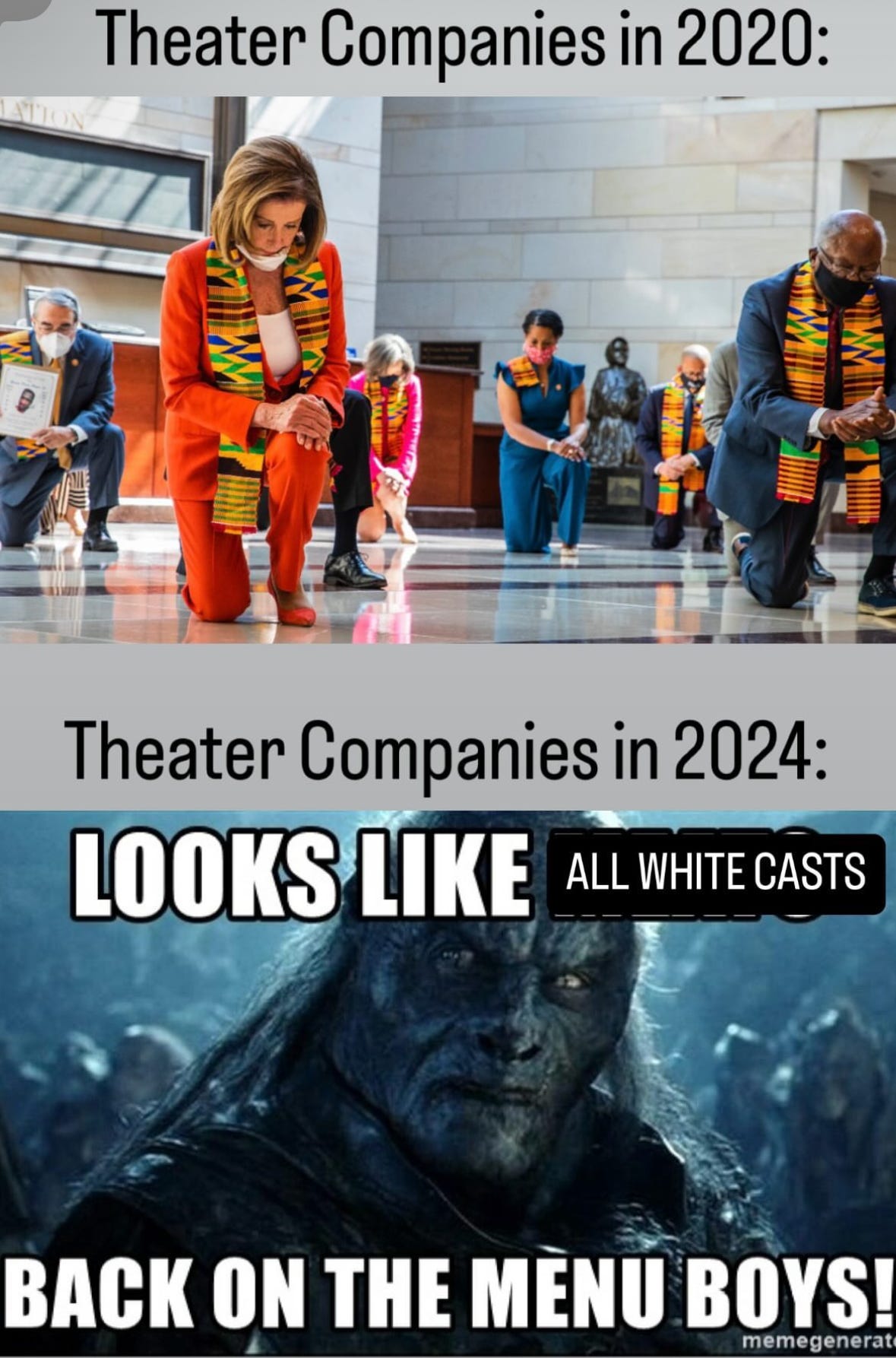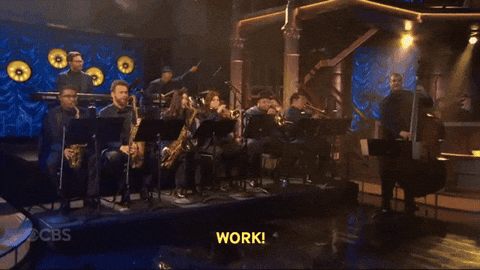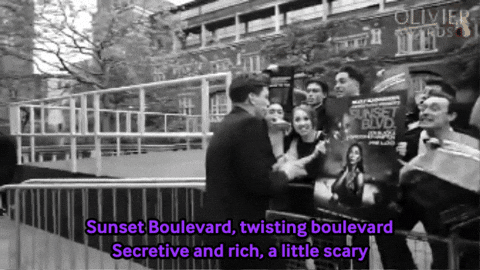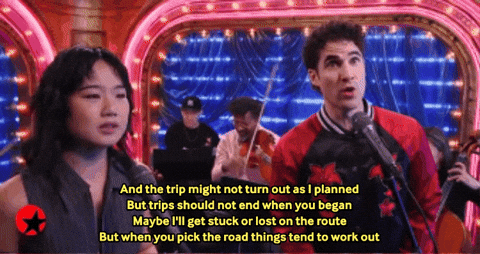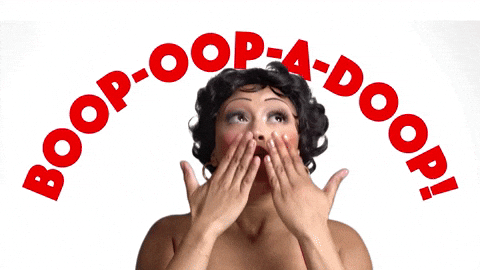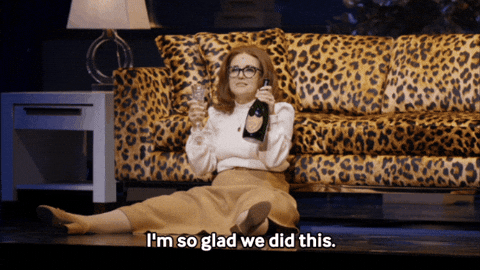Hello you beautiful babes. I am just coming off of my annual trip to Oklahoma City to work with magnificent BFA Acting majors at OCU during their senior showcase weekend and three days of EPA’s (Equity Principal Auditions) at Raven Theatre. And as with every year, I am so totally blown away by the level of talent in the Chicago theatre community. Not to mention the freshly minted Chicagoans who are dipping their toes into audition season in the Windy City for the very first time. Ya’ll truly knocked my socks off and will surely make my job hard, which I LOVE. Also, thank you thank you THANK YOU for not doing any LaBute or Mamet. But also slightly disappointed no one came in and did Sam Rockwell’s monologue from season 3 of White Lotus. Really.
Ok, the niceties are over. It’s time we had a talk, Chicago theatremakers. Specifically, my fellow white theatremakers.
I can’t pinpoint exactly when this plague began but I can estimate that over the past eight months, the majority of shows produced in Chicago have featured majority white or all white casts. I hear it being talked about at The Understudy, whispered about at the theatre kid birthday parties at Pizza Lobo, raged about at an opening night’s after-after party at some shady dive (which are always the best dives, according to this Chicagoan) where one person in your cast knows the barkeep a little too well.
And it’s not only evident in those casting announcements but also in something I mentioned in my last post, when discussing the recent Non-Equity Jeff Awards: “80% of individual awards (not counting ensemble and production) in the 2024 Non-Equity Jeffs went to white artists. And to my knowledge, only one award went to Trans artists.”
Let me ask a very basic question that anyone with a decent moral compass has been asking themselves over the past several months: WHAT IN THE ACTUAL FUCK IS GOING ON HERE?!?!? And to put it bluntly: why is Chicago Theatre looking a whole hell of a lot like Trump’s America?!?!
I think I have some answers. And spoiler alert: it’s nothing new.
It is time for a history lesson. And no, I am not Mx. Frizzle with a Magic School Bus that will take us back in time so you can see Cromer’s Our Town. Per our syllabus, we’re only going back to 2015, a time where so many of us white folks were blissfully unaware of our own racial bias, when Trans roles were still being played by cis actors (iykyk), and only a year before At The Table at Broken Nose would become the play white folks needed to see about racism *sarcasm*…especially cause it was written by a white dude.1
10 years ago, an organization that became instrumental in the push to diversify Chicago stages was formed: The Chicago Inclusion Project.
Emjoy Gavino, Founder and Executive Director of TCIP (on top of being an incredible actor and all around awesome human being), states that after working as a monitor and reader for a few friends’ auditions, one specific experience led her to found the organization:
“There was one particular audition room where the director had asked the casting person specifically for a diverse selection of artists for this ensemble, after a full day of auditions and seeing what seemed like the same body type, skin color, even hair color, for hours, the director expressed disappointment.
And the casting director, without missing a beat, with me RIGHT next to her said "Well, there aren't that many minorities in Chicago."
When I get mad, I actually shut down. So I did that as I walked to the el and the whole train ride back. And that night, within 2 hours I sent that director and casting person 50 names and emails of people they should have called in.
Having sat in that room I realized that this is what happens behind the table, and why it had taken me so long to get where I was as an actor - not enough people were fighting for me to be there, too many people had the privilege not to. And it pissed me off. It was that experience that turned me into a casting director. And one experience of many that united the team that founded The Chicago Inclusion Project. Partially out of rage, partially out of not wanting to wait around for other people to come around, and partially out of a need to be in the same room together, to create art together.”
TCIP was officially launched on June 1, 2015 with a staged reading of William Saroyan’s The Time of Your Life, directed by Chay Yew, at Victory Gardens Theatre. And let me state for the record: this cast was chock full of Chicago Theatre legends like Michael Patrick Thornton, Behzad Debu, Delia Kropp, Anthony Fleming III, Charin Alvarez and Gavino herself.
But more importantly, it was diverse af and not in the colorblind casting bullshit way. Each role was intentionally cast with everything that actor had to offer in mind. Because as we all know very well, your race, gender, size and/or ability do not just magically disappear when you step on a stage. Actors always bring their whole self to a role and in the words of the late, great Martha Lavey, former artistic director of Steppenwolf Theatre,
“As for the big ‘“so what?’”—why does diversity matter to theater?—Lavey reframes that question this way: ‘“Does it make the conversation better?’” Her disarmingly simple, indisputable answer:
‘“Yeah.’”2
TCIP has gone on to cast productions for American Theatre Company, About Face Theatre, Victory Gardens Theatre, while consulting with a variety of theatre companies within Chicago. On top of their casting work, TCIP has become a vital institution in our community when it comes to leading nuanced and imperative conversations about inclusivity, anti-racism, disability justice (particularly in the wake of the ongoing Covid-19 pandemic), transphobia, fatphobia and beyond. Not to mention they are the new hosts of the Chicago Access Auditions, an initiative created by a group of local actors several years ago to bridge the gap between large Equity theatres and non-union actors who often have to fight for visibility in those spaces.
Chicago would not have made such strides in the diversity on our stages and beyond in the past decade if it were not for the work of The Chicago Inclusion Project and yet, it looks like we’re right back where we started from. Gavino expressed to me when we chatted last week that, “the ultimate goal for the inclusion project is for us to not have to exist but.... gestures vaguely everywhere.”
Despite the work The Chicago Inclusion Project has done for our city and continues to do, along with many outspoken advocates for EDI on our stages, every few years a major casting snafu occurs. It feels like clockwork, the only difference is that now theatre companies seem to get away with having an EPA with “open ethnicity” on all roles for a specific show and then five months later, a cast announcement featuring all white actor’s is released (you know the one I am referring to…or MANY I should say). One reason, I believe this vicious cycle occurs is because having worked for a number of historically white institutions over the past 10 years, I’ve seen theatremakers of all kinds say to themselves, “not us!” or “we’re doing the work,” when in actuality they just took one EDI workshop in 2020 to take the heat off and own a copy of Robin D’Angelo’s White Fragility. 3
One year after TCIP’s formation, a casting debacle happened that would go down in Chicago Theatre history for decades to come (I hypothesize). A mistake so tragic and preventable that its name would be passed on to so many of those cringeworthy TikTok’s of majority white schools doing the show that gave Lin Manuel Miranda his first million. And we called it, In The Whites.
A little PSA: if you are an ethnically ambiguous *VOMITS* white actor who maybe learned Spanish in elementary school and ended up playing quite a few Latinx roles in your BFA program, REMOVE THEM FROM YOUR RESUME IMMEDIATELY. Actually, don’t even put them there. Because that’s ultimately where our story begins.
You see, an ethnically ambiguous white actor walked into an audition for the Midwest regional premiere of In the Heights at Porchlight Theatre in 2016 to read for the role of Usnavi and he booked it. And you’ll never guess what he did next: he accepted the role.
Legally, a theatre can never ask about your race/ethnicity or your gender, sexuality, disabilities, etc.. And if they do, boy do I have a great lawyer for you! But that being said, it is still the theatre’s job to do their due diligence to make sure that when they want to promote the shows cast as “authentic”, they aren’t lying through their teeth. AND, it is also a white actor’s job to really question whether taking a role away from a Latinx actor is really worth it to have a controversy follow you around for the rest of your career. It’s also whitewashing and that’s FUCKED.
Needless to say, when it was found out that this production was not as authentic as it claimed to be, shit went down. Nearly 300 members of the Chicago Theatre community gathered at Victory Gardens Theatre (the irony isn’t lost on me) to have a town hall called “The Color Game: Whitewashing Latinx Stories”4, to discuss the lack of roles available to BIPOC actors (déjà vu?) and how even roles written by and for artists of color were still going to white actors. 5 The event was organized by the Chicago Alliance of Latinx Theatre Artists to discuss the issue and propose some practical solutions. More than 2,000 people followed the discussion on a live Facebook stream on top of those attending in person. This event was also created in response to Marriott’s very white production of Evita, produced earlier that same year.6
Ultimately, this moment in Chicago history allowed for so many members of our community to come together and actively grapple with an issue that reared its ugly head after decades of being a problem not only because one theatre company royally fucked up but because in the end, the theatre community as a whole needed to create more opportunities for artists of color, commit to switching up their majority white institutions and make sure their companies, inside and out, are reflective of the whole of Chicago and giving marginalized artists the ability to have a seat at the table, always. All of this in order to lay a great foundation for the future of Chicago Theatre.
At the end of the town hall, professor and company member of Teatro Luna, Liza Ann Acosta stated, quite frankly,
“We need to be active, not passive. We need to think about who’s coming after us.”
Then 2017 and The Book of Will at Northlight happened.
You’d think we would’ve learned from the embarrassment of In the Whites and to that I’d say, THINK AGAIN!
Even when a playwright as renowned as Lauren Gunderson writes on the second page of her script for The Book of Will, “Casting should be diverse. Shakespeare is meant for everyone”, you can apparently choose to ignore her. That is until you get called out for your all white cast. And don’t forget the all white production team.
Lavina Jadhwani, local director, writer and activist, really lead the charge when it came to the conversation surrounding this production. Especially because Jadhwani is an incredible advocate for diversity in classical plays, particularly Shakespeare. She noted in her review of the production, featured on Rescripted (a former Artist-led, Chicago based interactive commentary on the state of the arts),7
“ This production of The Book of Will reinforces the notion that only cis, white, able bodied artists are capable of honoring Shakespeare’s words, and that’s simply not true. By choosing to present this story, on a large scale, through an all white lens, the Northlight production also reflects a notion of white supremacy that’s incredibly dangerous.”
And because Jadhwani’s work is something to be highlighted in regard to why it is SO FUCKED HOW WHITE CHICAGO THEATRE IS….AGAIN, I am going to continue quoting her piece:
“Many decision makers subscribe to the belief that Shakespeare should be performed a certain way. That belief that is rooted in the assumption that his words were written for white, cis, able-bodied men — and should continue to be performed in that manner. For example, I’ve heard white producers claim that the actors of color they auditioned “didn’t get the style” or “couldn’t perform the dialects required.” I find those claims to be thin excuses – again, Shakespeare is meant for everyone. I believe that people who hide behind the idea that certain people can’t get Shakespeare “right” are missing the point — and oppressing marginalized voices while they do so.
Due to the respected reputations of both Northlight and Thebus, this production sets a precedent — for future productions of this play in specific as well as future productions of Shakespeare, in general. I’m deeply uncomfortable with that precedent. As someone who champions both new plays and canonical work, I see this production as a big step backwards. In the future, I hope producers will choose to honor Gunderson’s vision more clearly and hire a more inclusive cast and production team, helping to move this play, as well as our entire field, forward.”
So, here we are again. And somehow, worse off.
But what’s glaringly obvious is this: most of the heavy lifting when it comes to conversations on authentic casting and diversifying stages has always been on the backs of artists of color. They have been moving the conversation along and we, the white people, have on occasion, bent to their will or maybe even seen the error of our ways and changed. Maybe we’ve even virtue signaled in our bios just how much of a #ally we are. But now, in 2025, the second term of President Cheeto, it seems like we don’t care as much as we used to. Or maybe we never did? White supremacy is on our doorstep and we’re just letting it just walk right in and put its dirty shoes on our coffee table. And our stages and casting practices reflect it.
Maybe, it’s just cause the actors don’t exist? or didn’t submit to be considered for this particular production? or they’re not as experienced as their cis, white counterparts?
More likely, it’s because your company has a history of treating BIPOC, Trans, Disabled, and queer artists poorly or you’ve never actively welcomed in and opened your doors to those folks in your company history. Chances are that you and your casting director didn’t want to do the work it takes to get a diverse array of artists into your auditions because that takes too much time and effort and why not just recycle the same actors over and over again because while that can look like tokenization, at least you still look sort of diverse. I have a feeling that you didn’t think about the lack of access and resources a Black Trans woman has to classical text training when you were casting your all female Twelfth Night, so you kept her voice out of the room and in doing so, declared her experience of femininity invalid or less than because of her transness, despite the passion and authenticity she brought to her audition. But you’ll still cast that problematic white dude who makes his fellow castmates miserable all because he’s “great with text”.
In giving us a little bit of historical context as to what only a small portion of the conversation has looked like when it comes to racial diversity on our stages, I wanted to emphasize this point: Chicago Theatre does not look even the slightest bit like Chicago right now. And it’s because of us (us meaning white people).
*An update*: I received a call in from a friend and colleague that I would like to address immediately. The conversation of diversity on stage in Chicago theatre would be nothing without the Black artists who have put their livelihood on the line, in order to call out countless problematic behaviors of fellow theatre artists and institutions.
Bear Bellinger created an entirely free database of actors of color in Chicago for casting directors and companies to use so the excuse that “they don’t exist” couldn’t be said again. On top of his constant work with AEA, Bellinger also posted a public letter to Marriott in 2016 when they cast only one actor of Latinx descent in their Evita, leading to the town hall discussed earlier. Actor/director Sydney Charles has also been calling out some of the worst perpetrators of racism and problematic behavior within our community for years. Not to mention playwright Ike Holter, who really has personified the statement “the pen is mightier than the sword” when addressing just how fucked Chicago theatre can be. And there are so many more Black artists who have also sacrificed so much in order to move the Chicago theatre forward; some of whom no longer work in the field because of it. There’s a reason why so many companies read aloud Black Labor statements at first rehearsals or in their pre-show announcements: our country was built on the backs of Black people. And so was the American Theatre.
SO, that’s part 1 of this little ditty. Part 2 is the data, cause lord knows ya’ll need to see how racist casting in Chicago theatre looks right now to actually believe it. And it’s bad. Like, calling back a diverse array of actors for your fancy regional theatre play and ending up with a cast of 10 white people in 2025….and yes, this is a thing that happened this year (a shot of Malört for you if you DM me first with the answer and if we’ve already talked about it, you’re disqualified from winning).
More importantly, we need to actively work to fix it. I have a few ideas on how we might begin and I hope you do too.
For now, I am going to stay hydrated, install my AC unit (cause Chicago summer waits for no one) and get some rest before the next piece.
And as always, I’ll leave you with:
“good casting is good dramaturgy!”
I am always happy to rant passionately about how much I hated this play, how fucked up it is that it was written by a white dude and directed by a white dude and how critics and Jeff committee members fawned over it like it was the antidote for ending racism.
https://www.timeout.com/chicago/things-to-do/color-bind
If you’re learning critical race theory from a white woman who has been dubbed problematic but also a plagiarist, you’re doing it wrong.
You can watch the entire discussion and breakout session here: https://howlround.com/happenings/conversation
I strongly suggest reading Tommy Rivera Vega’s op-ed on whitewashing and the importance of authentic casting: https://chicagoreader.com/blogs/porchlights-whitewashing-of-in-the-heights-narrator-is-a-letdown-for-latinx-community/
https://www.timeout.com/chicago/blog/marriott-theatre-faces-criticism-over-evita-casting-031716
https://rescripted.org/2017/11/30/book-of-will/




